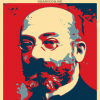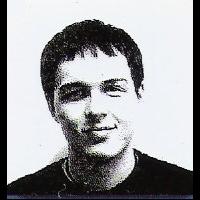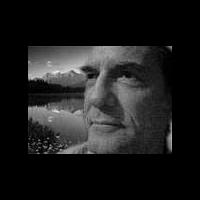Poruke: 14
Jezik: English
Stefano B (Prikaz profila) 27. studenoga 2007. 19:01:03
Frakseno:Hello.I'm not fluent in Esperanto yet, but to me it sounds better to use the infinitive form of the verb. So I would say, "Mi pensas, ke skribi Esperanton estas pli malfacile ol legi gxin."
As part of my effort to become fluent in la internacia lingvo, I have begun keeping a journal entirely in E-o, in which I write a brief paragraph every day or so.
This has really shaken me a bit, as I find out exactly how large the gaps are in my (beginner's) knowledge of how to express myself correctly.
Here is a specific question I have, and it may just highlight how ignorance of my native language's (English) grammar is hindering my learning of a second language:
When referring to "writing" and "reading," as in saying that
"Writing in Esperanto is more difficult than reading it."
what forms do the words for writing and reading take? Would it be verbs (ie - skribas / legas)?
"Mi pensas, ke skribas Esperanton estas pli malfacila ol legas gxin." ???
Or some form of noun (ie - skribanto / leganto)? I'm really baffled in a manner to which I am unused.
Dankon! Thanks in advance!
I suppose I could be getting my Esperanto confused with my Spanish here, because I spend much more time studying and using Spanish than Esperanto, but to me using the infinitive form of the verb seems correct in this context.
billpatt1942 (Prikaz profila) 28. studenoga 2007. 03:37:44
You have a wonderful idea, a great practice! By writing every day you will learn and become fluent. The problem of knowing what to say, how to say something is the main problem whenever we learn a new language. I think the best way is the child's way - just say and write what comes to mind. Gradually, you'll see how others do it. It's like dancing, which I've never mastered. No matter how long you watch, no matter how you study the diagram, you will not be a dancer until you go out there and sway to the music. You are becoming an Esperantist by pondering even a simple sentence. Bravo!
One way I have been increasing my fluency, is to read. Perhaps the lessons in your My Lernu! study plan. Or get a book or story or a few of the proverbs out of the library. I find a sentence I'm not comfortable with. Look up the new word or two. Say it over and over. Rearange the words. Play!
You don't need to be a grammar geek. Use some play: Mi pensas ke skribas esperanton... I think. When it come to skribas what fits? Mi skribas. I write. Maybe. Am I going to say I write more easy? Or I think every one writes more easy? Is writing an idea or what a specified person is going to do. Play! When you are done, it will sound nice and it will be understood. As Peter Schikele (spelling?) says, if it sounds good, it is good.
Good luck Frakaseno! I hope we will meet and speak and have fun with esperanto! Mi esperas ke ni renkontos, parolos, kaj ĝuas kune kun Esperante!
Amike, Bill, la maljunviro.
Frakseno (Prikaz profila) 29. studenoga 2007. 01:00:19
I can't take credit for the journaling idea - I think I got it from two places:
1. Peter Jameson's Secret Language by Sylvan Zaft
2. the syllabus I found online for an E-o course that was (is?) being offered at Stanford
I am continuing to write, and it is definitely increasing my empathy (and admiration) for people for whom English is a second language.
This site is such a phenomenal resource with such helpful people!
Mi scias, ke mi plibonigxos!
Frakseno (Prikaz profila) 30. studenoga 2007. 00:24:45



